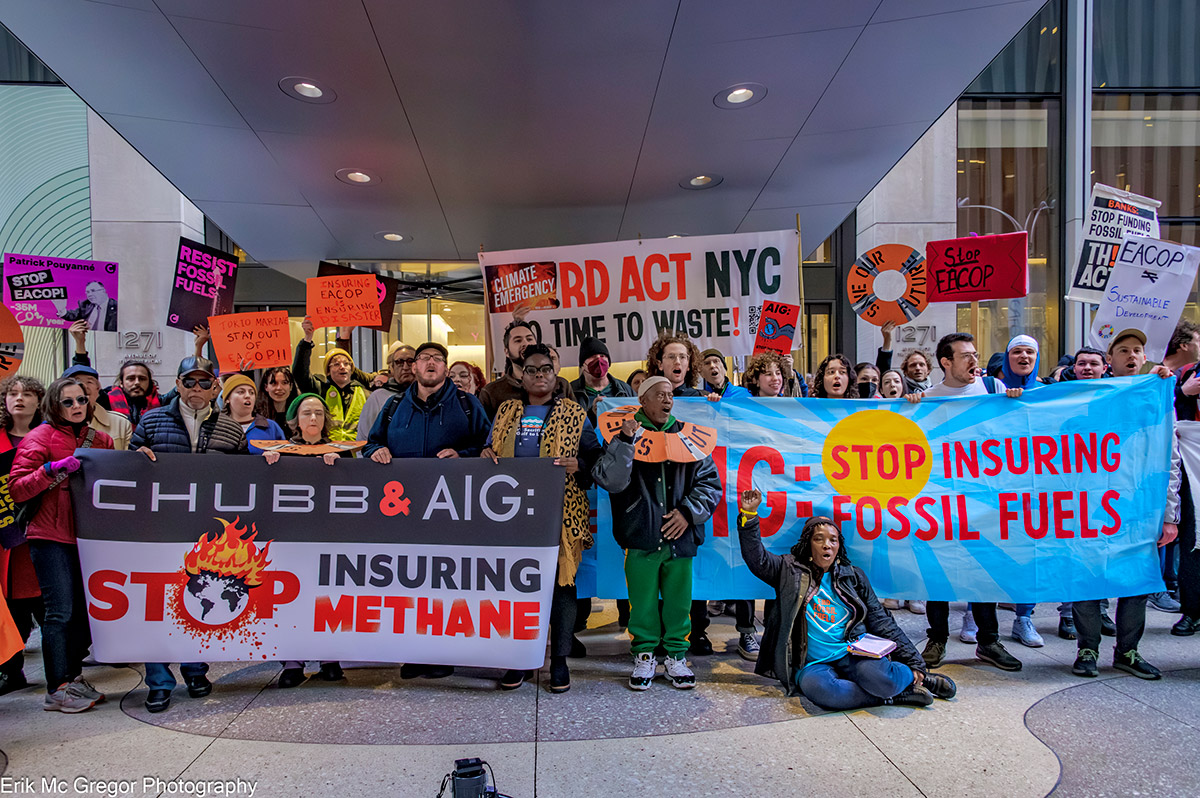At RAN, easy access to information and media amplification help move people in that direction. For example, when we published our Banking on Climate Chaos report, Forbes ran the headline “Banks Back Fossil Fuels With $6.9 Trillion.” People could immediately see how their banks are breaking their promises to fight the climate crisis. That was just one of more than 400 media mentions in the first 12 hours of the report’s release — with close to 1,000 mentions in the first week of publication.
Building and amplifying this research-backed narrative is the foundation for strategic activism that can effect real change. In Charlotte, NC, dozens of activists showed up at Bank of America’s Annual General Meeting to bring their personal stories of the effects of continued fossil fuel buildout to the bank’s decision makers. Thousands more individuals completed online petitions that were delivered directly to Bank of America’s C-suite. This is how we make our voices heard.
Countering Corporate Greenwash Globally
We need to be as loud as possible because major corporations have huge marketing budgets and expertise in the dark arts of greenwashing — painting a rosy and environment-friendly picture of their policies and practices, when the reality is bleak. RAN’s work to expose the true financial connections and culpability of our corporate targets based on deeply researched accounts of their actions is essential to our campaigns.

At a time when journalism is under increasing attack and the media landscape continues to contract, RAN has been able to keep our issues in the spotlight. Over the past year, RAN has coordinated significant media exposure to highlight these issues, including a Newsweek Op Ed from Executive Director Ginger Cassady about Procter & Gamble’s connections to tropical deforestation; significant coverage in major European, Indonesian, and Japanese news outlets on international banks and their fossil fuel and deforestation connections; and being included a White House Briefing about President Biden’s halt of methane expansion projects, to name a few.
Why Local Coverage Matters
While national and international news outlets affect the broader narrative, local coverage of specific corporations falling short of their promises can be even more devastating — especially when coverage includes community members taking action.
For example, in July City Beat, a local Cincinnati news source, covered a RAN-led action at Procter & Gamble (P&G). Not only did the reporter write about the action, where protesters demanded P&G address continued deforestation in their supply chain, she also wrote about the research that informed the action — highlighting P&G’s knowledge of deforestation in North Sumatra without consent of the Batak community. As a company that positions itself as a Cincinnati community leader, facing such public rebuke can have a mighty impact.
Inspiring Collective Impact
Leveraging global and local coverage to propel in-person and online organizing is how we build people power. RAN campaigns rely on committed individuals coming together to hold corporations accountable and adhere to their promises. We continue to grow. Our Network has engaged over 1.2 million people over 40 years, with more than 75,000 action takers and 93,000 individual donors making this work possible. This past year, RAN’s in-person and online actions have moved our campaigns and key messages forward. We won’t ignore false promises. We won’t move backward. We won’t accept business as usual from the biggest multinational banks, insurance companies, and brands. If you are profiting from deforestation, climate chaos or human rights abuses, our collective power will hold you accountable.













